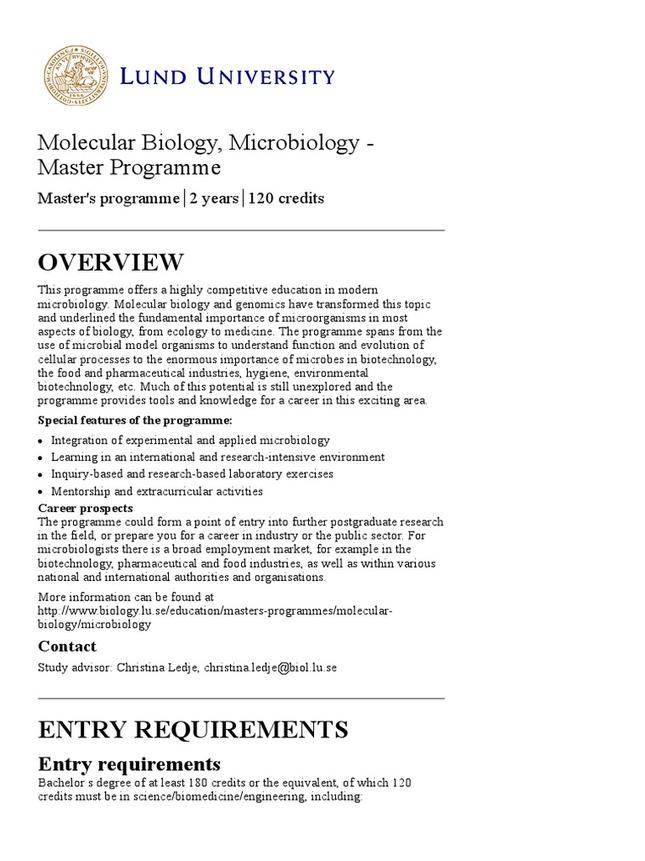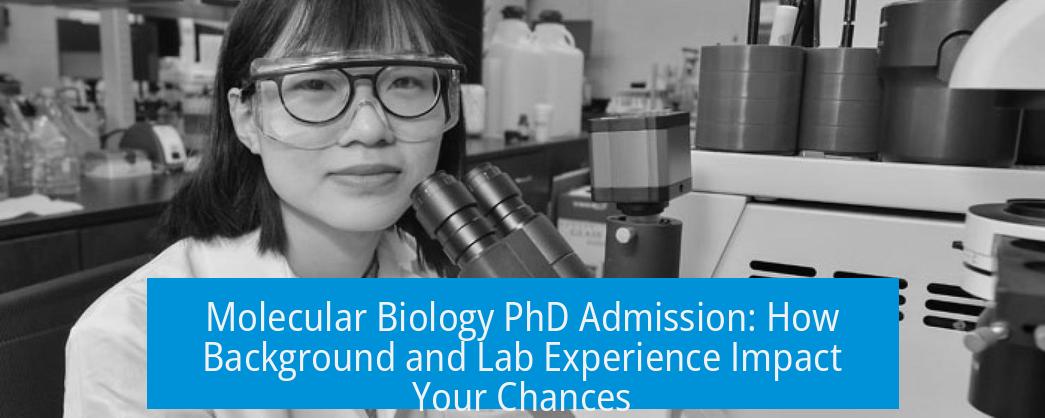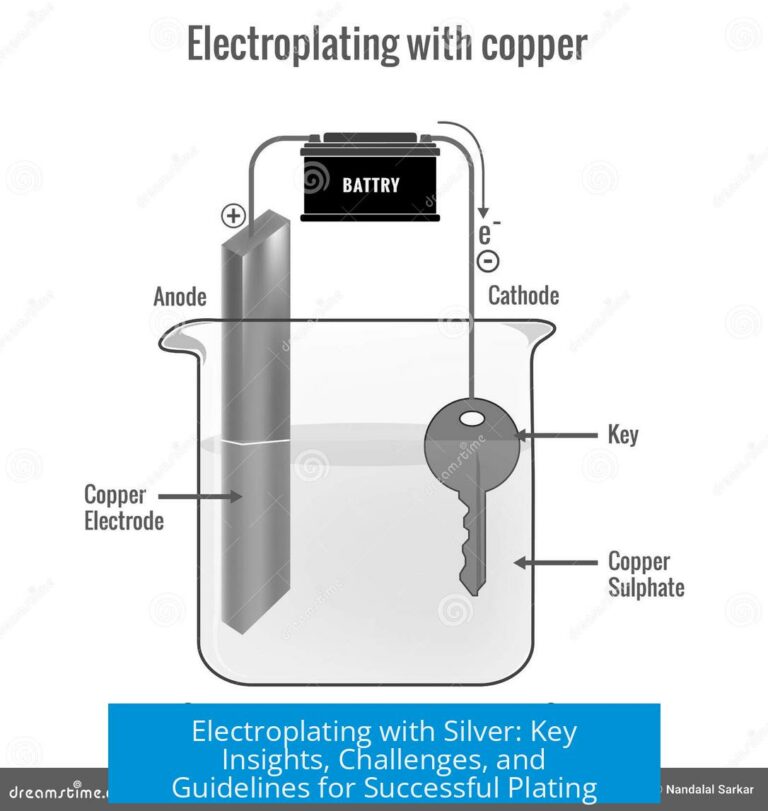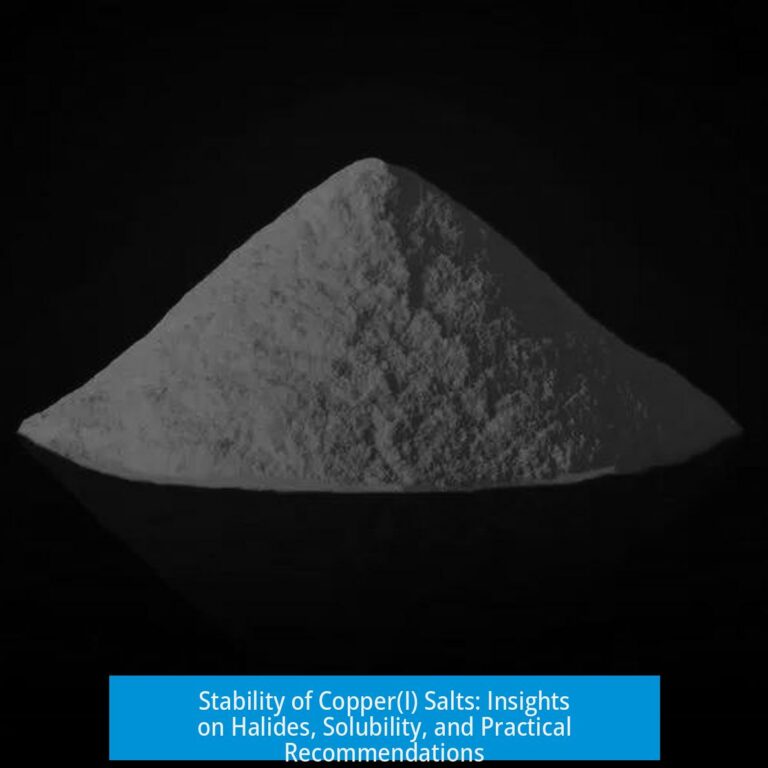Would My Background and Lab Experience Give Me Any Chance of Getting Into a PhD Program for Molecular Biology?

Your background and lab experience can influence your admission chances into a molecular biology PhD program, but success depends on multiple factors such as academic record, research output, letters of recommendation, citizenship, and program selection. While challenges exist, especially for international applicants or those with a lower GPA, strategic steps can improve your odds.
1. The Role of Academic Background and Lab Experience
Admission committees evaluate your academic preparation and hands-on research exposure closely. Your coursework, major, and lab work demonstrate readiness for PhD challenges. The depth and relevance of lab experience, especially if accompanied by research results, play an important role in applications. A major outside of biology, like pharmacy, may still be advantageous — it provides a unique perspective and relevant knowledge, making your application stand out.
Although some candidates face concerns over a lower GPA, evidence suggests that applying is worthwhile. Programs may consider other factors alongside GPA. Strong letters of recommendation reflecting your skills and growth can influence decisions positively.
2. Importance of Research Publications and Output
Publishing research can significantly enhance your profile. Admissions often weigh a record of first-author or contributing publications heavily. If your GPA is not high, a publication record can compensate and highlight your research capabilities.
- Developing manuscripts from lab projects adds weight to your application.
- Experience as a lab technician or research assistant can facilitate data collection and manuscript preparation.
- Particularly strong publications in reputable journals improve competitiveness.
Acquiring publications or at least submitting manuscripts signals both productivity and commitment to scientific advancement. Pursuing technician roles, particularly in US labs, also expands your network and may result in strong letters of recommendation from influential scientists.
3. Effects of Citizenship and Funding Constraints
Admission to top-tier molecular biology PhD programs in the US often depends on funding availability. Many elite institutions rely on NIH training grants restricted to US citizens during initial years. Consequently, these programs show strong bias toward US applicants.
International applicants face steep competition for a handful of spots. Often the number of international slots per cycle is limited to zero or one in various programs, despite numerous qualified candidates. This systemic funding issue affects admissions and requires international students to plan carefully.
4. Choosing the Right Programs Strategically
Rather than focusing solely on elite institutions, targeting solid mid-tier programs or those offering niche expertise can improve chances. Some universities avoid heavy reliance on citizenship-restricted grants, creating fairer admission practices for international applicants.
- Specialized programs, such as those emphasizing bioinformatics, frequently show more international representation.
- Schools with targeted research strengths may value diverse academic backgrounds, including pharmacy.
- Careful research into program funding sources and admission policies can optimize application outcomes.
5. How Major and Coursework Affect Admission
Your major holds less importance than you might expect. A background in pharmacy or related disciplines is distinctive and can enrich a molecular biology PhD cohort. Admissions committees often appreciate the varied expertise you bring.
Additionally, evaluating your transcript through a course-by-course educational credential assessment can underscore the rigor of your studies and contextualize your GPA. This process can present your academic record in a favorable light, demonstrating solid preparation in relevant subjects.
6. Networking and Communication with Professors
Direct contact with potential research advisors improves application prospects. Writing concise, personalized emails to PIs expressing genuine interest in their work combined with a CV and personal statement enhances your visibility.
- Use professional platforms like LinkedIn to establish connections thoughtfully.
- Maintain a complete profile focused on your skills and research background.
- Avoid coming across as pushy or entitled; respect professors’ time.
- Persistence is necessary, as standing out among many applicants requires a strong cover letter and statement.
If a PI expresses interest, they often assist your university application. Their mentorship and endorsement can be pivotal.
7. Benefits of Gaining Additional Experience Before Applying
Taking a gap year to work in research roles or as a lab technician offers multiple advantages. It enables further skill development, bolsters your CV, and clarifies your scientific interests.
Experienced candidates typically start PhD research with greater direction. This can accelerate completion timelines and improve overall performance.
- Such experience strengthens letters of recommendation from supervisors who observe your abilities firsthand.
- For international applicants, working in US labs helps build valuable contacts and familiarity with the research environment.
- Financial benefits aside, the professional growth solidifies your commitment to academia.
Summary of Factors Influencing Molecular Biology PhD Admission Chances
| Factor | Impact on Admission Chances | Tips |
|---|---|---|
| Academic Background | Provides foundational knowledge; non-biology majors can be strengths. | Highlight relevant coursework; consider credential evaluation. |
| Lab Experience | Demonstrates practical skills and readiness; key for strong recommendations. | Gain diverse research tasks; seek publications. |
| Research Publications | Highly valued; can offset weaker GPA. | Aim for first-author papers; collaborate on manuscripts. |
| Letters of Recommendation | Critical in holistic review processes. | Work closely with mentors; secure detailed, personalized letters. |
| Citizenship & Funding | Limits availability in top-tier US programs for international applicants. | Research program funding policies; apply broadly including mid-tier schools. |
| Networking | Builds connections, improves chances. | Use LinkedIn and professional emails; communicate clearly and professionally. |
| Additional Experience | Enhances applications and readiness. | Consider technician roles or master’s programs to strengthen profile. |
Key Takeaways
- Your background and lab experience alone do not guarantee admission but play substantial roles.
- Strong research output, including publications, and quality recommendation letters improve chances significantly.
- US citizenship strongly influences funding access and admissions at top molecular biology PhD programs.
- Applying to mid-tier or specialized programs may provide more accessible opportunities.
- Strategic networking with potential advisors and targeted communication improves visibility.
- Taking gap years for relevant work experience or pursuing a master’s degree can enhance competitiveness.
Will my lab experience help offset a low GPA when applying to a molecular biology PhD?
Yes. Strong lab experience and publications can compensate for a lower GPA. First author papers or solid research output improve your chances. Admissions committees value real research impact.
Does my major matter if it’s not biology but a related field like pharmacy?
Your major is less important than your skills. A pharmacy background can actually set you apart. Showing rigorous coursework through credential evaluations can also help strengthen your application.
How does being an international student affect my chances of admission?
International applicants face tougher competition due to limited funding spots, especially at elite US programs. Many schools reserve few slots, making admission more competitive for non-citizens.
Should I apply only to top-tier universities or consider others?
Target a range of programs. Mid-tier or specialized departments often have more flexible funding and better international representation. This strategy can boost your chances of acceptance.
Is networking with potential advisors important for admission?
Yes. Contacting professors directly with a tailored CV and personal statement helps. Use professional platforms like LinkedIn to connect respectfully and build relationships that may support your application.
Would gaining work or research experience after undergrad improve my PhD prospects?
Yes. Taking a gap year to do research can clarify your goals, build skills, and create connections. This experience often leads to stronger applications and quicker progress during the PhD.





Leave a Comment